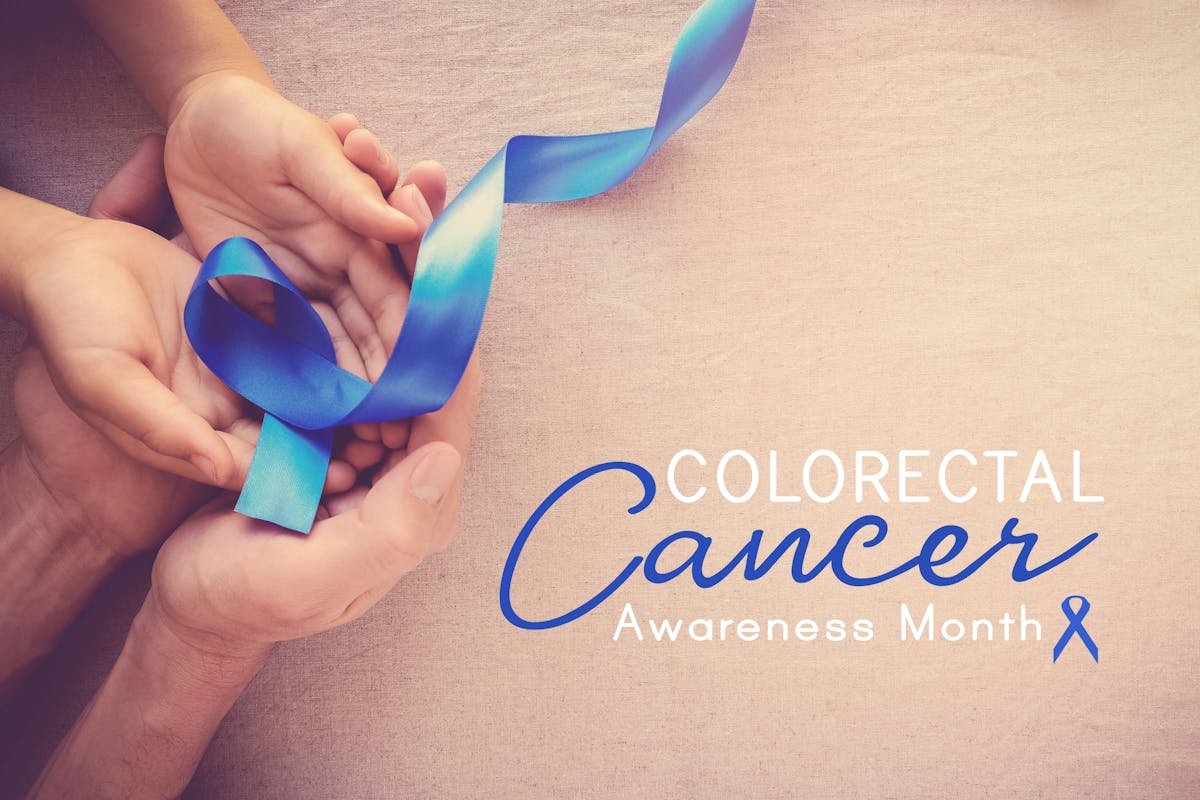Colorectal Cancer Awareness Tips

March is Colorectal Cancer Awareness Month. In the past we’ve shared research on the role your diet might play in developing either colon or rectal cancer. What you eat can impact your risk for a variety of cancers, including colorectal cancer.
Equally important is learning more about this often-preventable disease and the other lifestyle choices that can put you at increased risk.
What Is Colorectal Cancer?
Colorectal cancer is an umbrella term for cancer that begins in the colon (the large intestine) or the rectum. It happens when polyps, small clumps of cells on the lining of the colon, develop into cancer.
The most common form of colorectal cancer is adenocarcinoma, although there are others. Accounting for as much as 96% of all cases, adenocarcinoma begins in the cells that create mucus to lubricate the inside of the colon and rectum.
Unfortunately, there are few, if any, symptoms of any type of colorectal cancer in the earliest stages of the disease. Here are the most common signs of colon or rectal cancers:
- Continued change in bowel habits
- Unexplained weakness or fatigue
- Unintended weight loss
- Rectal bleeding or blood in the stool
- Persistent abdominal cramps, pain, or gas
- Sensation that bowel won’t empty completely
While a procedure known as a colonoscopy is considered the gold standard for early detection, other options exist for those at average risk for colorectal cancer who are hesitant to get a colonoscopy. This list of colorectal screening tests from the Centers for Disease Control and Prevention can help you learn more.
Colorectal Cancer Is a Leading Cause of Cancer Deaths in the US
Colorectal cancer is the third most common form of cancer in this country. While deaths among older adults have been declining, largely due to more people being screened, it’s a different story for those under the age of 64. For those between 50 and 64, loss of life to colorectal cancer has increased by 1% a year. For those under 50, the rate is climbing by 2% a year.
While some risk factors for colorectal cancer, primarily age and family history, are unavoidable, others are linked to lifestyle. By being mindful of certain choices, you may be able to lower your odds of developing this disease.
Lifestyle Choices That Impact Colorectal Cancer Risk
You may unknowingly be putting yourself at higher risk for colon or rectal cancers with the lifestyle choices you make each day, such as:
- Smoking and secondhand smoke: Smokers and people who live or work in close quarters with a smoker have a higher risk for colorectal cancer.
- Alcohol consumption: According to the National Cancer Institute, people who regularly indulge in moderate to heavy amounts of alcohol are up to 1.5 times more likely to develop colorectal cancers than those who don’t drink at all.
- Sitting too much: While researchers aren’t sure why, a sedentary life is linked to three types of cancer. They are breast, endometrial, and colon cancers.
- Lack of exercise: Physical activity plays a role in preventing most forms of cancer, including colorectal. Studies show people who regularly exercise are 30% to 40% less likely to develop colorectal cancer.
Diet and Colorectal Cancer
What you eat is believed to play an essential role in either increasing or lowering your risk for colorectal cancer. Research suggests that a diet rich in fruits, vegetables, and whole grains may lower your risk. By contrast, a diet high in meat, especially processed meats like hot dogs and some types of bacon and sausage, increase your odds of getting colorectal cancer.
If you’d like to learn more about food choices and colorectal cancer, Can Dietary Choices Affect Your Risk for Colorectal Cancer? is a good resource to review.